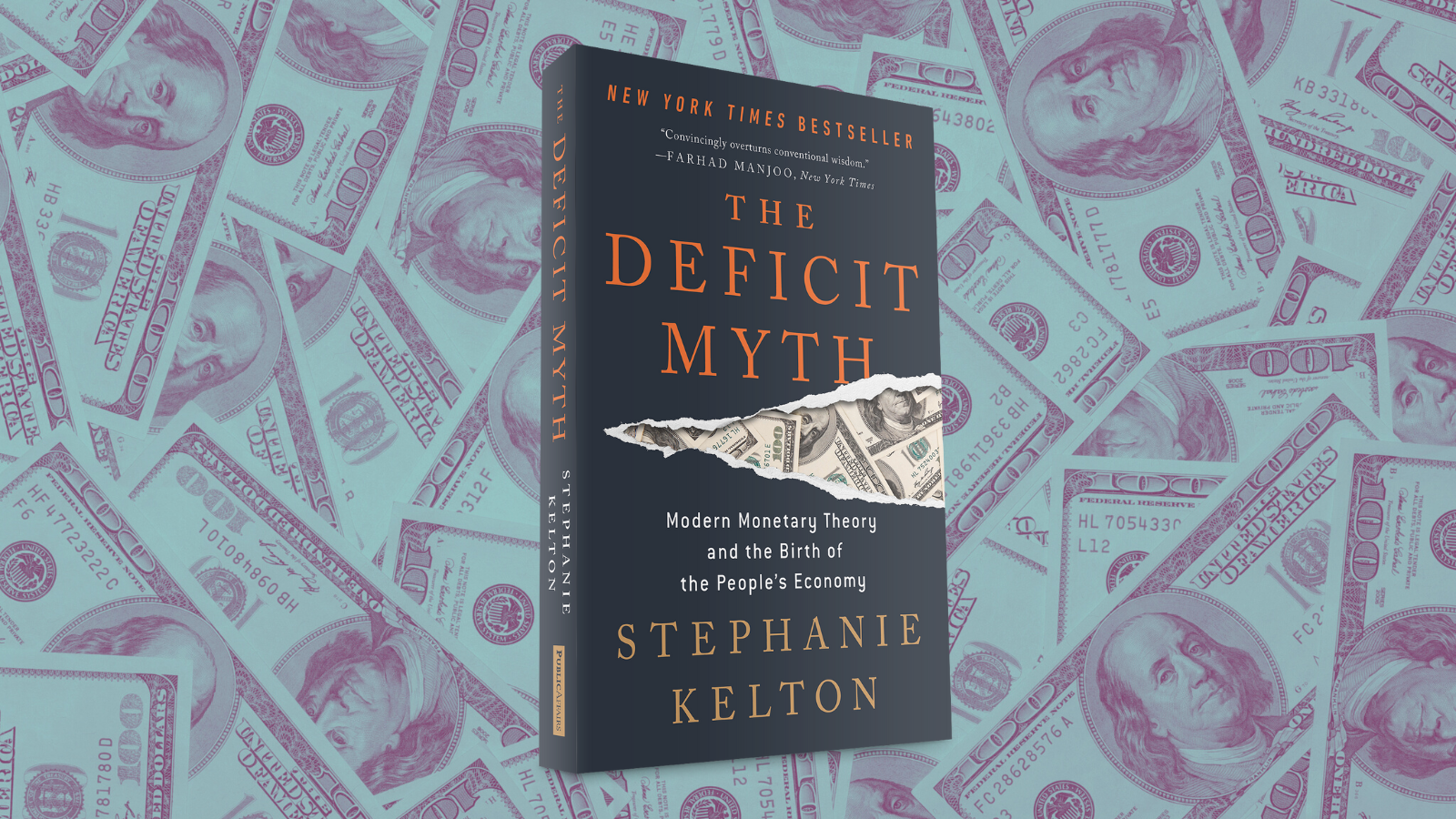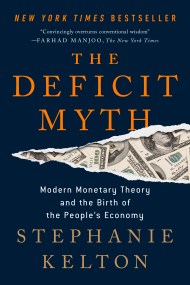The U.S. hit its debt limit (again). Why balancing the federal budget isn’t the correct response.

After the U.S. hit its $31.4 trillion debt cap last week, the Treasury Department began using a series of accounting maneuvers to ensure that the federal government could keep paying its bills. In response, House Republicans say they will refuse to raise the borrowing limit again unless President Biden agrees to steep cuts in federal spending.
It’s another iteration of the same debate that we’ve been having for decades: Should the government only spend as much money as it raises? Or, in other words, should we balance the federal budget — and potentially even eliminate the country’s deficit?
No, says Stephanie Kelton, former chief economist on the US Senate budget committee and current professor of economics and public policy at Stony Brook University. In The Deficit Myth: Modern Monetary Theory and the Birth of the People’s Economy, Kelton dispels five persistent myths about debt and politics.
The federal government is not like your household.
Your family budget is nothing like the national budget for one fundamental reason: You can’t manufacture dollars, and the federal government can. That means the US can always pay its bills—as long as we don’t convert our currency into something we could run out of, like gold, and as long as we don’t borrow in a currency that isn’t our own, like Euros.
Unfortunately, the fear of racking up a deficit still carries huge political clout. The House of Representatives even has a self-imposed rule, PAYGO, which makes it harder for lawmakers to approve new spending. In the Senate, the Byrd rule has the similar effect of discouraging new spending, regardless of how beneficial it might be.
We must recognize that these rules are fundamentally arbitrary and that there’s no legitimate economic reason to automatically prioritize saving over spending.
The “best” government budget is not one that’s perfectly balanced.
It is easy to get lost in the weeds of economics, but remember the ultimate goal of public policy is not a balanced budget. It is a balanced economy, one that manages both unemployment and inflation.
This is one benefit of levying taxes (cue: the groaning), also known as fiscal policy. When the government requires citizens to pay it back in dollars, it has more power to control inflation, alter the distribution of wealth and income, and encourage or discourage certain behaviors (think: taxes on cigarettes).
In addition, the federal government can achieve its public policy goals by enacting monetary policy. Specifically, the Federal Reserve uses interest rates to manage unemployment and inflation. But here’s the rub: no one— not even the Fed —knows the ideal rate of unemployment. It’s something that’s constantly changing, and we only understand it after the fact. However, what we do know is that the Fed prioritizes controlling inflation over maximizing employment, meaning millions of people are unnecessarily locked out of employment.
Foreign countries don’t control us through our debt.
From the way some politicians discuss our federal deficit, you might think that it’s one of the greatest threats to our national sovereignty. The reality is a bit more complicated.
Take the example of China, which imports to the US more than it exports. Americans pay for those Chinese goods with US dollars, and those dollars are then deposited into China’s bank account at the Federal Reserve. To take advantage of the interest rates, China will buy bonds from the U.S.
In essence, the US government allows China to transform the dollars that it earns from selling its imports into securities. That can add up to be quite a lot of dollars—China had a $420 billion trade surplus in 2018—but to say that China owns American debt is a bit misleading. The transaction is more an accounting maneuver than anything else.
Theoretically, China could decide to sell off these treasuries—as we’re often warned it could. But in the process, it would also wipe out its own trade surplus, which makes the scenario unlikely.
There’s no good reason for some entitlements—like Social Security—to ever be cut.
You’ve heard the warnings: at some point, social entitlements like Social Security, Medicare, Medicaid, food assistance, housing vouchers, and tax credits, will cost more than the government can afford. So, they must be scaled back immediately.
But as you just learned, these are federally-funded programs, and the federal government can never run out of money. But that’s not how we talk about the social safety net.
Consider the two trust funds that support Social Security and the two that support Medicare. Three of these funds will be exhausted in the near future, and they are considered “in crisis,” while the fourth is “healthy.” What’s the difference? The secure trust is legally required to pay full benefits even if its funds are exhausted, and the other three are not. So, Congress could grant the other three funds this same authority: to make payments no matter what. Ultimately, that’s a political choice, not an economic one.
When it comes to thinking about entitlements, we should keep this question in mind: How do we ensure our economy remains productive enough to supply the materials goods it takes to provide for the needs of future beneficiaries? In other words, if we support entitlements we “can’t afford,” how will the economy absorb the additional dollars, and how can we manage resulting inflation?
It was a disaster the last time we tried to pay off all our debts.
In 1835, President Andrew Jackson decided to pay off the public debt—the only time this ever happened in US history. It quickly led to one of the worst economic downturns ever experienced, and it isn’t difficult to see why.
As long as debts are not excessive, deficits help maintain a good economy by supporting incomes, sales, and profits. On the contrary, government surpluses shift deficits onto the non-government sector, at which point consumer spending tanks, and the economy falls into a depression. In fact, the country’s six significant economic depressions were all preceded by a sustained period of budget balancing.
So be skeptical next time you hear someone crusading for the US to “balance its books” and “tackle the national deficit.” Myths about our debt are so prominent it is difficult for many to believe the deficit isn’t inherently good or bad. It just is.
You can buy The Deficit Myth: Modern Monetary Theory and the Birth of the People’s Economy here:
